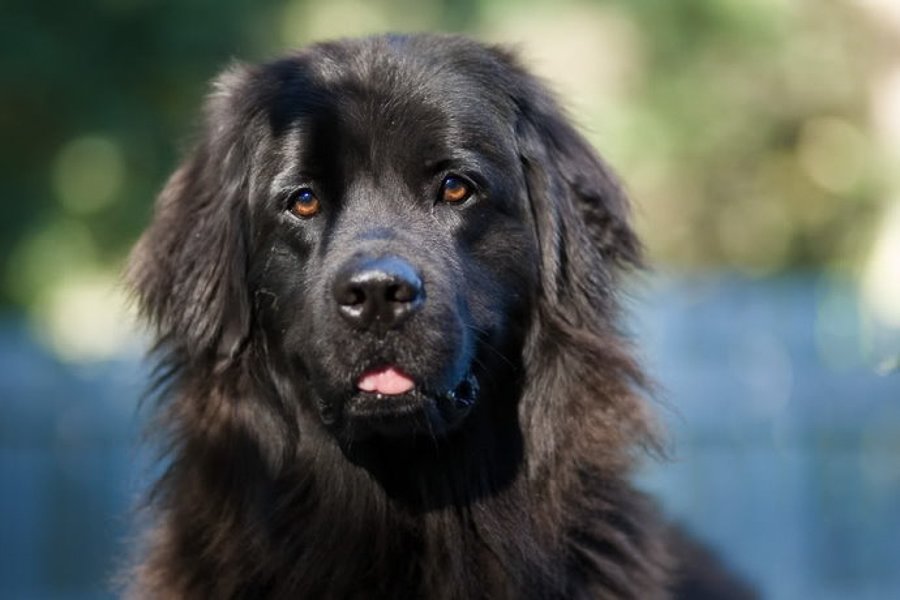
Newf Rescue Canada
Regional Contacts
The regional contacts listed in this website have been verified by Newf Rescue Canada. Caution is advised when dealing with any person or organization claiming to be Newf rescue but not listed herein.
Atlantic Provinces
Rescue: Atlantic Newfoundland Dog Rescue
Email: Devon Nutbeem
Phone: 506-459-8348
Quebec
Website: S.O.S. Terre-Neuve
Email: Email a volunteer
Contact: Marie-Claude Bouchard
Phone: 418-290-2833
Contact: France Landry
Phone: 418-243-3550 (English/French)
Ontario – South, Central, East & West
Website: Newf Friends
Ontario – Northwest
Email: Fay Greer
Phone: 807-577-1001
Saskatchewan
Email: Brenda Vanstone
Alberta
Email: Alberta Fanciers Club
If you are unable to locate a rescue group able to assist you, please contact Newf Friends.
Newfoundland Clubs
National Clubs
National Clubs have tons of information about the breed, a breeders list, information about dog shows and training seminars, links to regional clubs, and much more.
Newfoundland Dog Club of Canada
Newfoundland Club of America
Regional Clubs
Regional clubs are a great source of information and often offer workshops, seminars, and newsletters. Websites lists upcoming events which may be of interest to Newf owners as well as people considering adding a Newf to their family.
Atlantic Provinces
Atlantic Newfoundland Dog Club
Kathy Hanson — 506-696-6627
South Eastern Ontario
South Eastern Ontario Region Newfoundland Dog Club of Canada
Central Ontario
Central Ontario Newfoundland Dog Club of Canada
Northwestern Ontario
Fay Greer — 807-577-1001
Alberta
All-Breed Clubs
All-breed clubs offer info on breed standards, a list of events – including dog shows, and general information.
Considering adding a Newf to your family?
Newfs are the gentle giants of the dog world and are known for their sweet and loving temperament. Very social dogs, Newfs love to be part of every aspect of family life. However, despite their lovable personality, Newfs are not for everyone. Their size, exercise requirements, grooming needs and emotional needs all contribute to making them a dog which requires a very committed owner who wants to spend a lot of their time with their dog. If you are considering adding a Newf to your family there are a few things you should take into consideration.
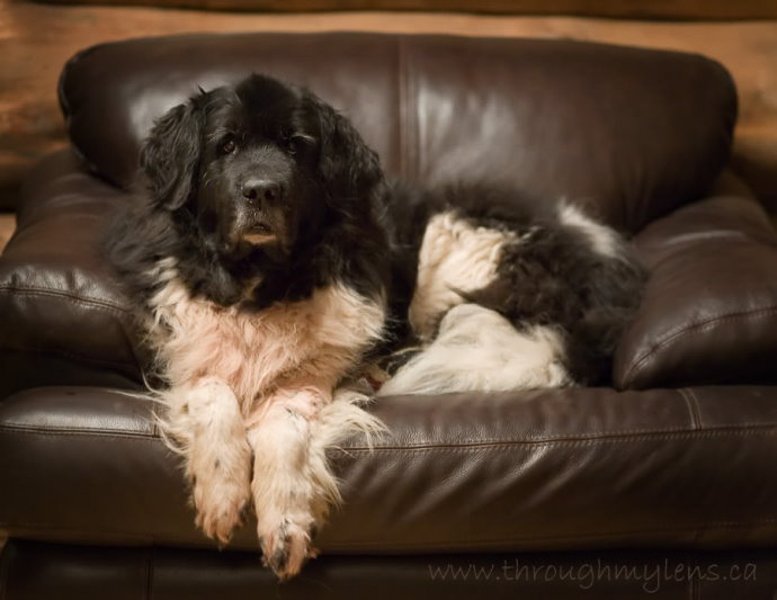
Size and Space
Newfoundland Dogs are giant dogs. The average height for an adult is 26-28 inches, and they weigh in around 120-150 lbs. Do you have room in your home and your vehicle for a dog this size? You should seriously look at your home from a Newf’s perspective to see if it is a suitable environment, keeping in mind that as your Newf ages his mobility may become compromised.
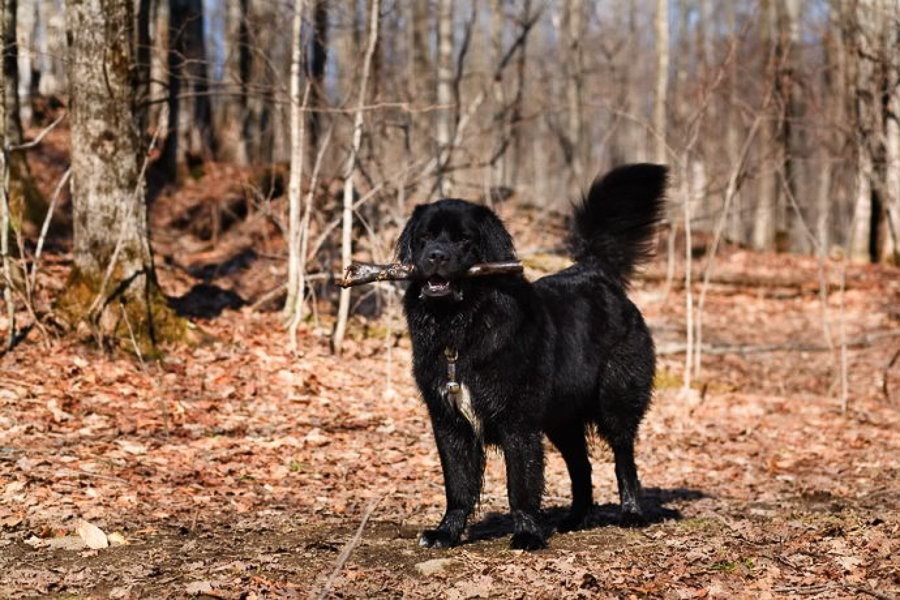
Exercise Needs
Newfs are a part of the Working Dog class, and have a natural affinity for water; be it a lake, river, pool, puddle, bath tub, or water bowl. Their massive size, webbed feet, and water resistant coat enables them to swim exceptionally well in even the coldest water, making them wonderful water rescue dogs. Despite their reputation as being laid back dogs, the reality is that Newfs are working dogs and they need to be worked each day. They require access to activities that will exercise their body and minds.
Newfs, particularly young ones, can be quite boisterous. Without adequate exercise and mental stimulation, they will make your home their playground. A rambunctious 130 lb dog racing through your house can cause a fair bit of damage. Do you have time in your life to sufficiently exercise a giant dog? This means walking and playing with your dog every day. A well exercised dog is a good dog, and to stay in shape physically and mentally, Newfs require a moderate amount of daily exercise. The exact amount will depend on the particular dog, but rest assured, they will keep you busy.
Newfs were bred to swim, and should have reasonable access to swimming. You don’t need to live on a lake, but having one nearby would be a good idea. Many Newf enthusiasts take their dogs to participate in Water Work, encouraging their dog’s natural desire to perform water rescue. Newfs often also participate in Carting (draft work), an activity which can be enjoyed by the whole family. Most regional Newf clubs organize such activities; contact your local club for details. Attending these competitions is a great way for you to learn more about Newfs to see if they really are the right breed for you.
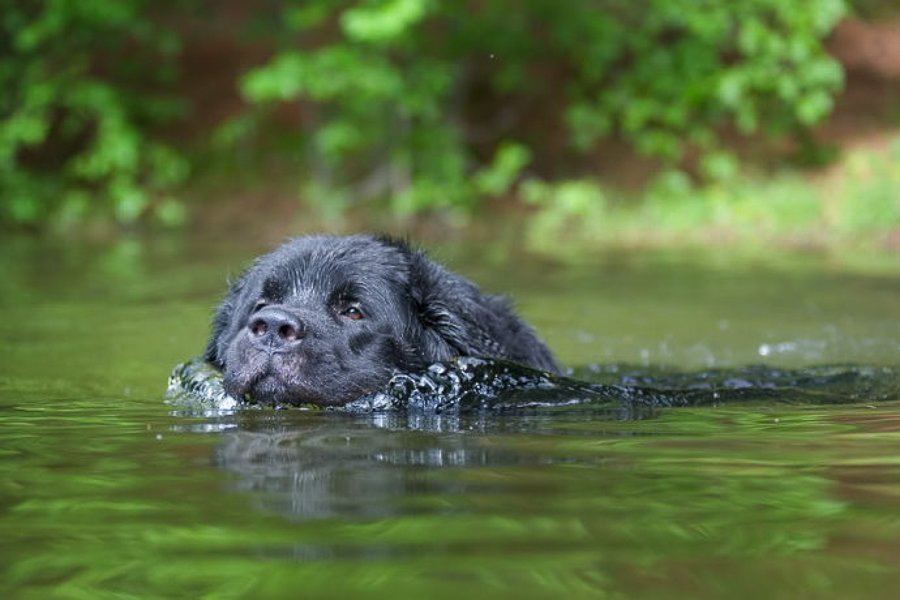
Nutrition
These are big dogs and they eat a lot of food. Newfs have special dietary needs to ensure that they thrive and it is essential that you feed your Newf a high quality diet to help maintain a healthy weight and meet their specific nutritional needs. Commercial dog foods vary in quality and often contain preservatives, poor quality meat sources, and other undesirable products. Newfs should be fed a high quality, well balanced diet, rich in taurine.
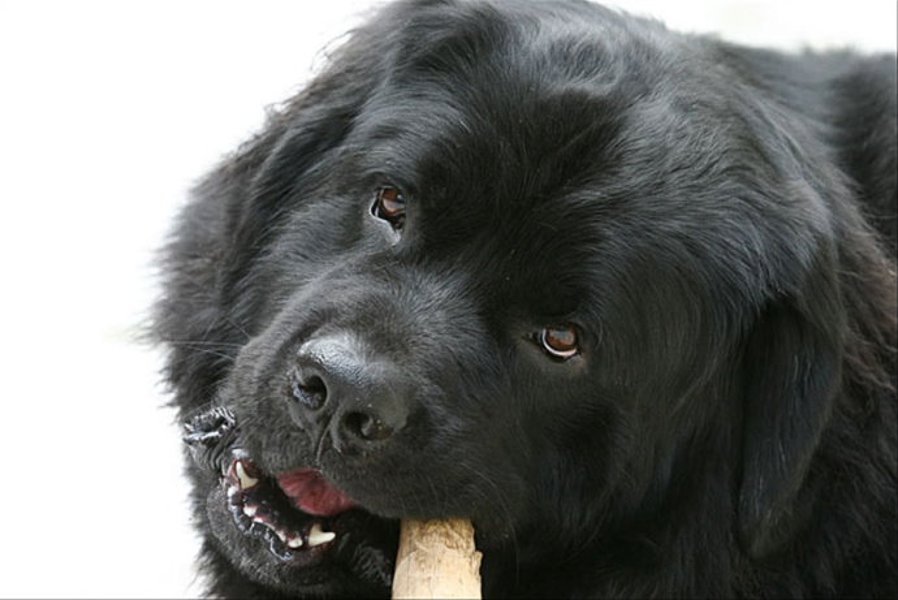
Financial Concerns
Big dogs mean big vet bills. It costs more to care for a large breed dog – they require higher doses of medication, are prone to more health problems, and have a shorter life expectancy than many smaller breeds. You should budget a minimum of $2,000 – $2,500 per year, per dog, for the rest of the dog’s life. That doesn’t include serious health issues these can cost thousands of dollars to treat.
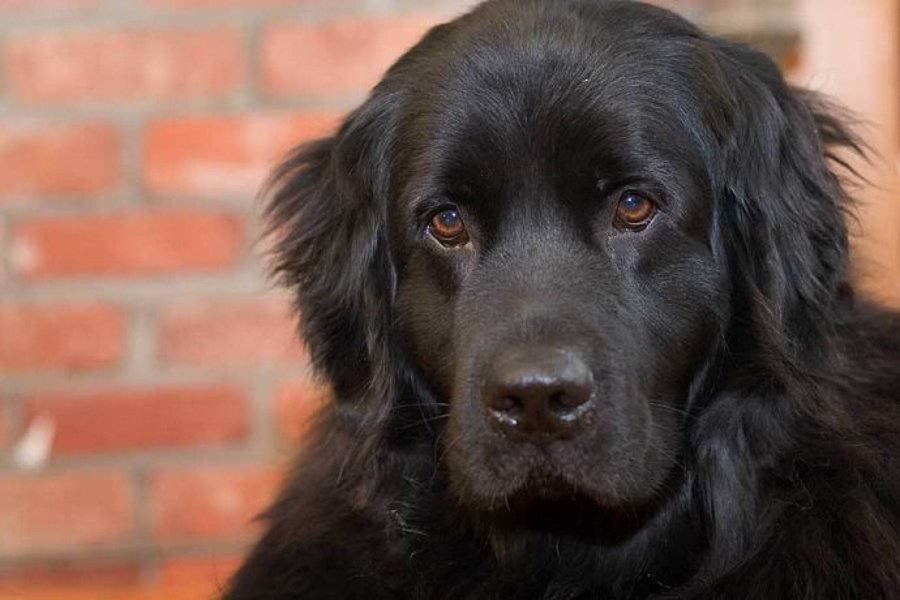
Health Care
You will need to provide veterinary care for your Newf. At a minimum, your dog should see a veterinarian annually to have a full check up and blood work. In addition to this, rabies vaccines are required by law in Ontario and will need to be done every three years. Heartworm, flea and tick prevention may also be necessary, keeping in mind that it can cost up to 3 times as much to purchase these medications for a Newf size dog as for smaller breeds. Puppies will require rounds of vaccinations and adult dogs may require booster vaccinations depending upon where you live. There are some excellent resources available to help you understand the benefits and side effects of vaccines. Educate yourself about the vaccines recommended for your area, and then have a discussion with your veterinarian.
Newfs who have health issues, and older dogs will need to visit the vet more frequently. Also expect to see the vet for a few emergencies/infections/sprains along the way.
Every purebred dog can have hereditary defects in it’s heritage. Genetics play a very significant role in the probability of your dog developing certain health issues. There are some health issues which are more common in Newfs and for which any good breeder will be screening. Both parents should have hips and elbows certified. If considering adopting a dog from a breeder, ask them about incidence of and screening for cystinuria, low thyroid, heart disease, laryngeal paralysis, seizures, bloat, OCD, panosteitis, cancer, eyelid disorders, allergies, and skin conditions in the lines. It is also important to enquire about the average life expectancy of their dogs, and to choose a breeder whose dogs are consistently living longer than the average life span. There are several breeders whose dogs are living 10 – 13 years, or longer.
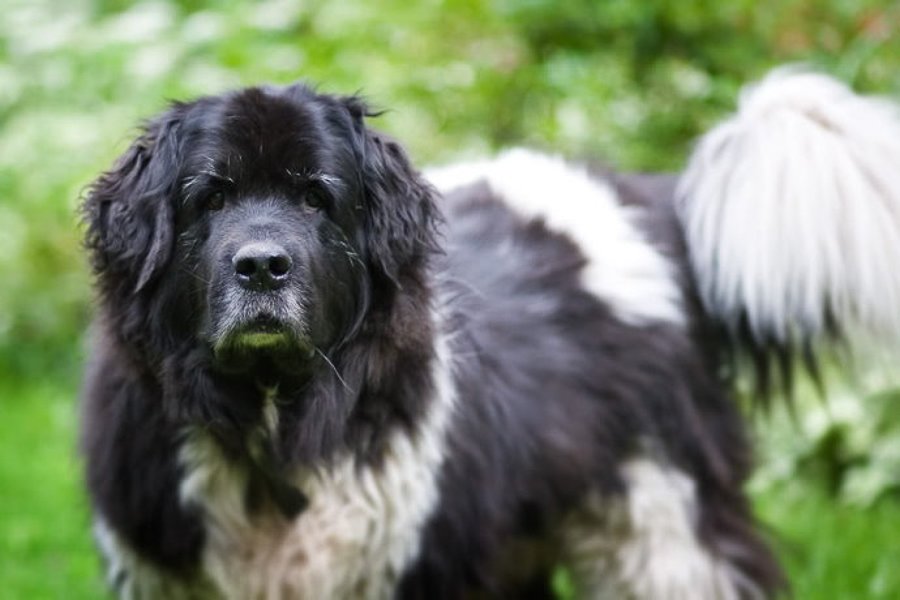
Shedding and Drool
Newfs are messy dogs. They shed, they drool, they drip water everywhere, they like to stand in/play in their water bowls and they will jump into any water source they can, no matter how swampy and disgusting it may be. Some Newfs drool more than others, but they all drool. Consider yourself warned, Newfs can fling their drool several meters! Be wary of any breeder that claims to be producing a “dry mouth Newf”, they don’t exist!
If you are greatly opposed to having hairy globs of drool on your clothes, furniture, walls, ceiling, inside and outside of your car, in your hair, in your food…then don’t get a Newf!
Newfs have a thick double coat. The outer coat is water resistant, and the undercoat is soft, thick, and warm. Newfs require regular (several times a week) grooming to remove dead undercoat and prevent matting and to keep their coat and skin in good condition. Mats can lead to horrible skin infections including hot spots, yeast infections, and fungal infections. You will need to purchase appropriate grooming tools for your dog which at a bare minimum should include a slicker, an undercoat brush, nail clippers, straight scissors, thinning scissors, combs, dog shampoos, conditioner, de-tangler, etc.
If you don’t have the facilities at home to bathe a 130 lb dog, be prepared to pay a pretty penny a few times a year to have it done professionally, and hope that your Newf never gets sprayed by a skunk!
Unless serious health issues require it, you shouldn’t shave your Newf since doing so damages their coat, leaving them vulnerable to hypothermia in the winter and heat exhaustion in the summer. It will also cause a grooming nightmare for you for the 2-3 years it will take for their coat to recover, as their downy undercoat will grow in first, matting and causing you further grooming problems. Some Newf’s coats never recover after being shaved.
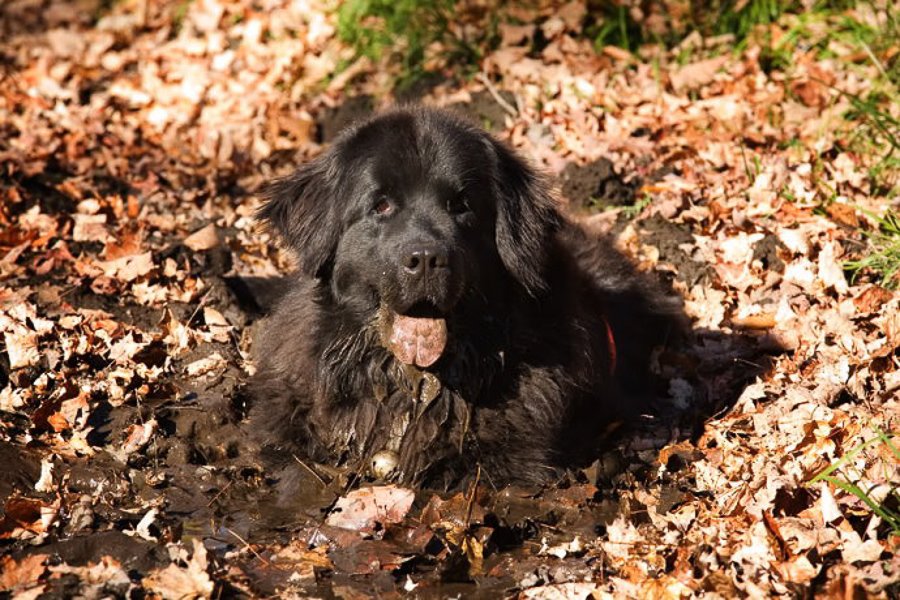
Equipment and More
In addition to your grooming equipment, the very basics you will need to live with a Newf are:
- A fenced yard
- Newf-sized food and water bowls
- Newf-sized collar and leash
- Newf-sized crate
- Newf-sized bed
- Newf-sized toys (never let your Newf play with tennis balls or anything that small – they can easily be swallowed and kill your dog!)
- A really good vacuum
- Newf-sized vehicle
- Newf-sized vehicle restraint
Once you get seriously into Newfs you may find that you want to explore drafting and water work. This will require other costly equipment including life vests, tow ropes, water training toys, a wetsuit, a cart, harness, and a larger house to keep all of these toys in!
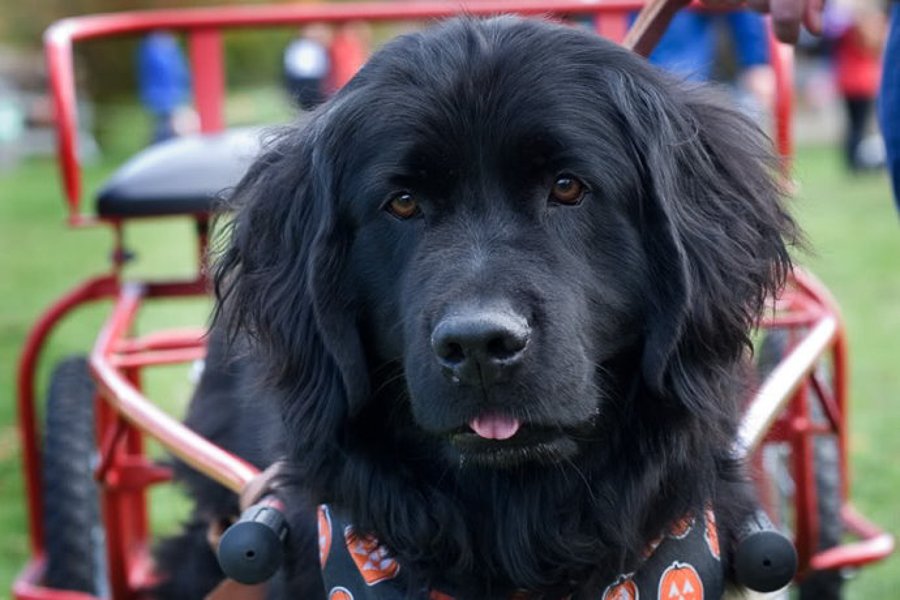
Temperament Traits
Newfs are social dogs, more so than many other breeds. They need to be with their pack. They are often referred to as “Velcro dogs” as they follow you around. Be prepared to have a 130 lb shadow wherever you go. They thrive in environments where they are included in all aspects of family life, are stimulated physically and mentally and treated with respect as members of their family.
These are intelligent, social, loving, and loyal dogs. Newfs are playful and fun loving and want nothing more than to be a part of everything that is going on around them. Although Newfs love cool weather and thoroughly enjoy rolling merrily in the snow, they typically do not want to be outside for any length of time unless their human pack members are out there with them. Be prepared to spend a lot of time outside if you plan on sharing your life with a Newf, and be prepared to keep your home cool.
Although sweet and gentle, Newfs can be down right crafty at times. They can get into a lot of trouble in a short time if not properly trained. Because of their size, it is essential that Newfs receive training. Despite their gentle nature, Newfs are not pushovers, a 150 lb male with little training and a bit of an attitude can mean serious trouble. Obedience training is a must with all Newfs.
